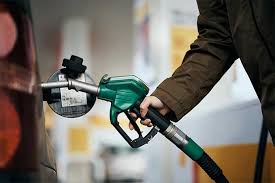Maritime stakeholders have said that 265 vessels owned by Nigerian beneficial interests have been lost to foreign ship registries due to the poor state of the country’s ship registry.
Emeka Akabogu, a maritime lawyer, revealed this in a document presented recently to new Director General of the Maritime Administration and Safety Agency, Dr Dayo Mobereola, at the maritime stakeholders group meeting in Lagos.
Akabogu, while citing a 2023 report by the United Nations Conference on Trade and Development, said that the vessels were registered by foreign registries like Liberia, Marshal Island, Panama, and Singapore, among others.
The findings shed light on a significant disparity between the number of vessels owned by Nigerian interests and those registered under foreign flags.
According to Akabogu, though Nigeria boasts the largest fleet in Africa with 291 vessels totalling 7.94 million deadweight tonnes and 30th place globally with a 0.56 per cent share of the world fleet value, a staggering 265 of these ships, with a combined deadweight tonnage of over 6.485 million deadweight tonnes, are registered abroad.
He raised the alarm about the consequences of continued capital flight and the loss of control over maritime assets.
He emphasised the need for decisive action to reverse the trend and safeguard Nigeria’s maritime sovereignty.
He called for robust policies to incentivise domestic ship registration and ownership, urging policymakers to prioritise measures that promote indigenous participation and curb capital flight.
Akabogu warned that failure to address those issues could jeopardise the industry’s growth prospects and undermine national security interests.
He explained that the discrepancy in ship registration highlights broader challenges facing Nigeria’s maritime industry, including policy ambiguity and regulatory inefficiencies.
Speaking also at the event, the President of the Nigerian Chamber of Shipping, Mr Aminu Umar, lamented that the ship registration process in neighbouring countries like Togo and Ghana was more seamless than in Nigeria.
He observed that in 30 minutes, the entire process for ship registration could be concluded in other countries because the processes were fully digital.
He encouraged NIMASA to do the same.
The pioneering Chairman of the Board of NIMASA, Dr Tijjani Ramalan, suggested the establishment of a National Shipping Line for the carriage of crude and refined products.
He also urged the new NIMASA leadership to prioritise inter-agency collaboration for integration with the Marine and Blue Economy as well as partnership with Dangote Group, other local refinery owners and indigenous shipowners.
“I suggest exploring the possibility of bringing the critical Nigerian stakeholders in maritime, oil and gas, and shipping onboard as a strategic partner in the establishment of the national shipping fleet/national carrier. Their expertise and resources can significantly contribute to the success and viability of this initiative as part of the Renewed Hope Agenda of President Bola Tinubu,” Ramalan claimed.
Earlier, the new DG of NIMASA vowed to expedite the full automation of the Nigerian ship registry.
Mobereola pledged that his leadership would prioritise gender inclusion within the agency and across various aspects of the maritime industry.
“We have to move the industry forward and advance the nation’s goals. We also have to align with the minister’s objectives for the blue economy.
“My purpose here for today’s occasion is to listen and take note of all the comments. I can assure you that all we have shared here will be put into consideration in developing our plans for the next four years,” he said.





























